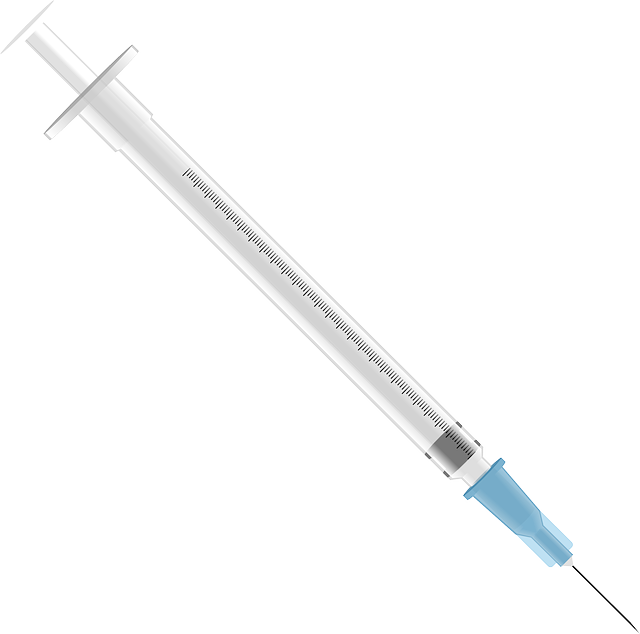Share This Article:

Injection Treatment’s Allowing Minn. Worker to Hold Job, Cut Opioids Warrants Application of ‘Rare Case Exception’
16 Aug, 2023 Frank Ferreri

Minneapolis, MN (WorkersCompensation.com) -- In Minnesota, treatment parameters are set up to keep costs low when an injured worker is under medical care.
But as was the case in McKeever v. Cub Foods, No. WC22-6499 (W.C..C.A. 08/08/23), a relatively new doctrine known as the "rare case exception" may trump the parameters when cost-benefit analysis adds up for a worker to get back to work and limit drugs.
The worker experienced a low back injury while working. Following the injury, the worker underwent several surgeries, participated in physical therapy and pain management, which included injections and medications.
When treatments for pain following the worker's sixth surgery were unsuccessful, she was treated with sympathetic block injections. The injections provided significant, temporary relief.
Throughout her treatment, the worker reported continued chronic pain in all four extremities, that her left foot was particularly painful and cold, and that her symptoms included burning, tingling, and sharp pain that worsened with movement, increased activity, and exertion. Her symptoms improved with relaxation, pain medication, and heating pads, but the injections provided relief of 50 percent, including significant warming of her left foot, which lasted a couple of months. On average, her foot temperature increased over 10 degrees Celsius after the injections.
The treating physician reported that the worker's pain was "very difficult to treat" and that the sympathetic block injection therapy provided enough relief to minimize the worker's opioid use and emergency room visits.
On the other hand, the employer and insurer's physician reached a different conclusion. In their view, the injection therapy was not reasonable because the worker received symptomatic relief typically for only one or two months.
The worker filed a claim petition.
The workers' compensation judge found that the employee's therapy was reasonable and necessary and qualified as a "rare case exception" to the treatment parameters and awarded payment for the therapy.
The employer and insurer appealed.
Under the rare case exception, which was first identified by the Minnesota Supreme Court in 1998, a WCJ may depart from the rules contained in the parameters in "rare cases in which departure is necessary for the employee to obtain proper treatment."
Workers' Comp 101: In Asit v. Northwest Airlines, 588 N.W. 2d 737 (Minn. 1999), the Land of 10,000 Lakes' top court held that a health club membership, which was outside the treatment parameters, was payable under the "rare case exception" because the membership was reasonably aiding the employee in maintaining his employment.
In upholding the WCJ's decision, the Workers' Compensation Cout of Appeals held that the rare case exception applied to allow the worker to receive the injections. Here's why:
(1) The worker was able to seek out and return to employment -- a significant goal of the workers' compensation system -- with the aid of the injections.
(2) The worker reduced her Oxycontin intake.
(3) The injections reduced the worker's pain, regulated the temperature in her extremities, and increased her functional ability.
"The relief of the employee's symptoms goes hand-in-hand with her ability to continue performing work and home activities," the court wrote. "Under these circumstances, we concluded that the compensation judge did not err in applying the 'rare case exception' to the treatment parameters and awarding the claimed medical expenses for the injection therapy."
AI california case file case management case management focus claims compensability compliance courts covid do you know the rule exclusive remedy florida FMLA glossary check Healthcare health care hr homeroom insurers iowa leadership leadership link medical NCCI new jersey new york ohio osha pennsylvania roadmap Safety safety at work state info tech technology violence WDYT what do you think women's history women's history month workcompcollege workers' comp 101 workers' recovery Workplace Safety Workplace Violence
Read Also
About The Author
About The Author
-
Frank Ferreri
Frank Ferreri, M.A., J.D. covers workers' compensation legal issues. He has published books, articles, and other material on multiple areas of employment, insurance, and disability law. Frank received his master's degree from the University of South Florida and juris doctor from the University of Florida Levin College of Law. Frank encourages everyone to consider helping out the Kind Souls Foundation and Kids' Chance of America.
More by This Author
Read More
- Jul 05, 2025
- Frank Ferreri
- Jul 04, 2025
- Frank Ferreri
- Jul 03, 2025
- Chris Parker
- Jul 03, 2025
- Liz Carey
- Jul 02, 2025
- Anne Llewellyn
- Jul 02, 2025
- Frank Ferreri




